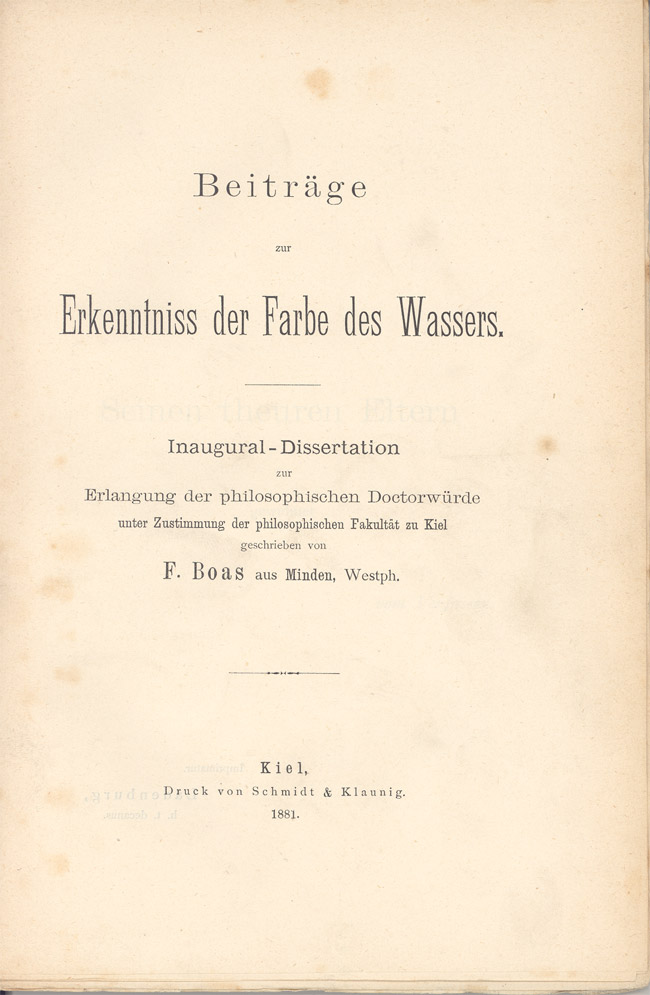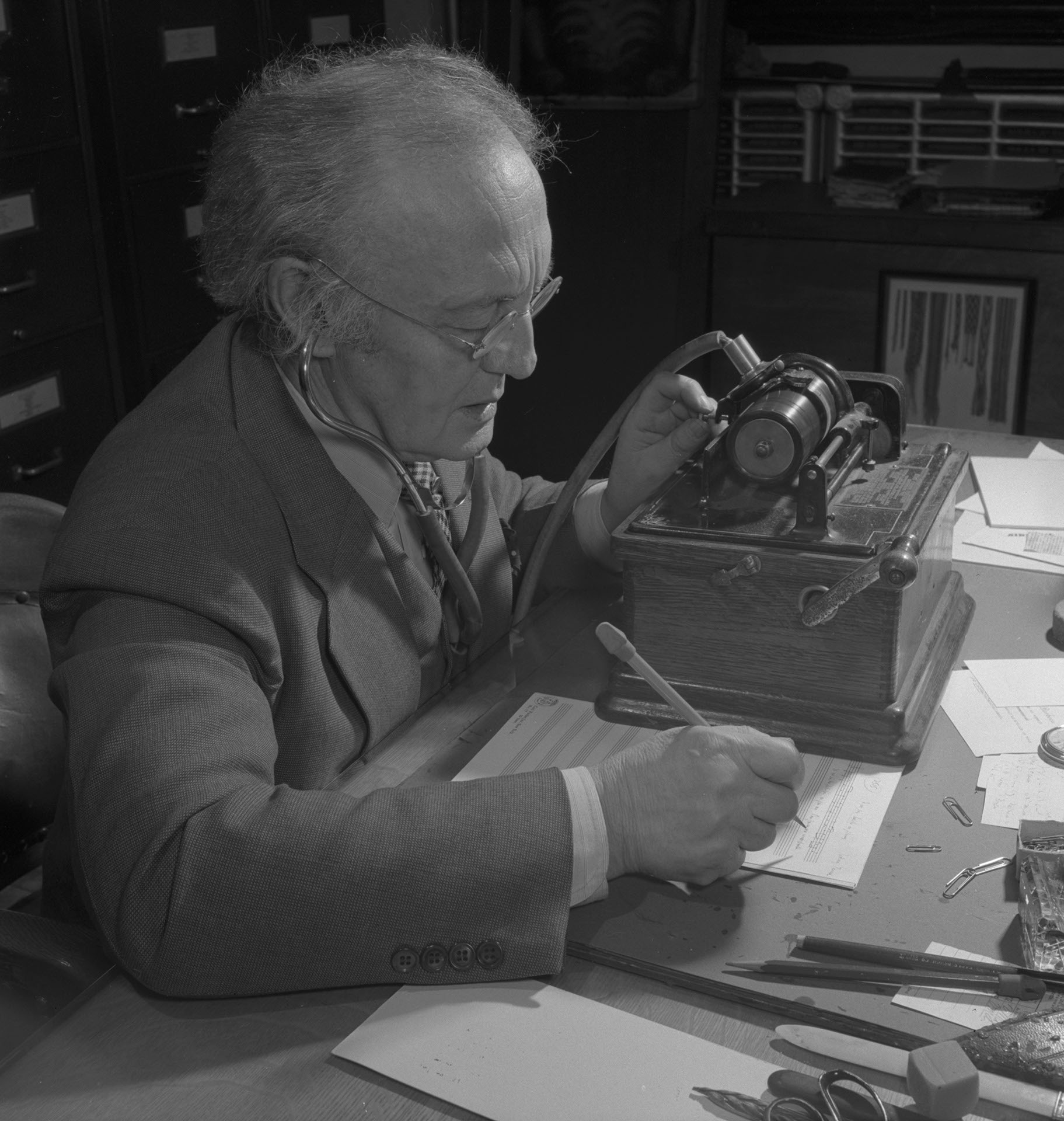|
Viola Garfield
Viola E. Garfield (December 5, 1899 – November 25, 1983) was an American anthropologist best known for her work on the social organization and plastic arts of the Tsimshian nation in British Columbia and Alaska. Early life Viola Edmundson was born in Des Moines, Iowa. Her family moved a few years later to Coupeville, Washington, on Whidbey Island, where she attended local schools. She enrolled at the University of Washington in Seattle beginning in 1919, transferring for financial reasons to what is now Western Washington University in Bellingham, where she became certified as a teacher. She started a position in the 1920s teaching Tsimshian children in Metlakatla, Alaska, on Annette Island. This experience sparked her interest in Pacific Northwest Coast ethnology. While working at the Seattle Chamber of Commerce, she became the typist for Charles Garfield, an Alaskan former miner and fur trader. They married in 1924. Career In 1927 Garfield re-enrolled at the Universit ... [...More Info...] [...Related Items...] OR: [Wikipedia] [Google] [Baidu] |
Anthropology
Anthropology is the scientific study of humanity, concerned with human behavior, human biology, cultures, societies, and linguistics, in both the present and past, including past human species. Social anthropology studies patterns of behavior, while cultural anthropology studies cultural meaning, including norms and values. A portmanteau term sociocultural anthropology is commonly used today. Linguistic anthropology studies how language influences social life. Biological or physical anthropology studies the biological development of humans. Archaeological anthropology, often termed as 'anthropology of the past', studies human activity through investigation of physical evidence. It is considered a branch of anthropology in North America and Asia, while in Europe archaeology is viewed as a discipline in its own right or grouped under other related disciplines, such as history and palaeontology. Etymology The abstract noun '' anthropology'' is first attested in referen ... [...More Info...] [...Related Items...] OR: [Wikipedia] [Google] [Baidu] |
Franz Boas
Franz Uri Boas (July 9, 1858 – December 21, 1942) was a German-American anthropologist and a pioneer of modern anthropology who has been called the "Father of American Anthropology". His work is associated with the movements known as historical particularism and cultural relativism. Studying in Germany, Boas was awarded a doctorate in 1881 in physics while also studying geography. He then participated in a geographical expedition to northern Canada, where he became fascinated with the culture and language of the Baffin Island Inuit. He went on to do field work with the indigenous cultures and languages of the Pacific Northwest. In 1887 he emigrated to the United States, where he first worked as a museum curator at the Smithsonian, and in 1899 became a professor of anthropology at Columbia University, where he remained for the rest of his career. Through his students, many of whom went on to found anthropology departments and research programmes inspired by their mentor, Boas pr ... [...More Info...] [...Related Items...] OR: [Wikipedia] [Google] [Baidu] |
1983 Deaths
The year 1983 saw both the official beginning of the Internet and the first mobile cellular telephone call. Events January * January 1 – The migration of the ARPANET to Internet protocol suite, TCP/IP is officially completed (this is considered to be the beginning of the true Internet). * January 24 – Twenty-five members of the Red Brigades are sentenced to life imprisonment for the 1978 murder of Italian politician Aldo Moro. * January 25 ** High-ranking Nazism, Nazi war crime, war criminal Klaus Barbie is arrested in Bolivia. ** IRAS is launched from Vandenberg AFB, to conduct the world's first all-sky infrared survey from space. February * February 2 – Giovanni Vigliotto goes on trial on charges of polygamy involving 105 women. * February 3 – Prime Minister of Australia Malcolm Fraser is granted a double dissolution of both houses of parliament, for 1983 Australian federal election, elections on March 5, 1983. As Fraser is being granted the dissolution, Bill Hayden ... [...More Info...] [...Related Items...] OR: [Wikipedia] [Google] [Baidu] |
1899 Births
Events January 1899 * January 1 ** Spanish rule ends in Cuba, concluding 400 years of the Spanish Empire in the Americas. ** Queens and Staten Island become administratively part of New York City. * January 2 – **Bolivia sets up a customs office in Puerto Alonso, leading to the Brazilian settlers there to declare the Republic of Acre in a revolt against Bolivian authorities. **The first part of the Jakarta Kota–Anyer Kidul railway on the island of Java is opened between Batavia Zuid ( Jakarta Kota) and Tangerang. * January 3 – Hungarian Prime Minister Dezső Bánffy fights an inconclusive duel with his bitter enemy in parliament, Horánszky Nándor. * January 4 – **U.S. President William McKinley's declaration of December 21, 1898, proclaiming a policy of benevolent assimilation of the Philippines as a United States territory, is announced in Manila by the U.S. commander, General Elwell Otis, and angers independence activists who had fought a ... [...More Info...] [...Related Items...] OR: [Wikipedia] [Google] [Baidu] |
Angoon, Alaska
Angoon (sometimes formerly spelled Angun, tli, Aangóon) is a city on Admiralty Island in Hoonah-Angoon Census Area, Alaska, United States. At the 2000 census the population was 572; by the 2010 census the population had declined to 459. The name in Tlingit, , means roughly "isthmus town." History Admiralty Island has long been the home of the Kootznoowoo Tlingit group, or ''Xootsnoowú Ḵwáan'' in Tlingit. Kootznoowoo means "fortress of brown bears", literally ''xoots-noow-ú'' "brown.bear-fortress-possessive". Angoon has a less-rainy climate than most of southeastern Alaska and was valued by the Tlingit for that reason. During the Russian period in Alaska, from the 18th century to the mid-19th century, maritime fur trading was a major economic activity in the area. In 1878, after the 1867 Alaska Purchase, the North West Trading Company established a trading post and whaling station on nearby Killisnoo Island and employed Angoon villagers to hunt whales. Whaling, a sch ... [...More Info...] [...Related Items...] OR: [Wikipedia] [Google] [Baidu] |
Carol M
Carol may refer to: People with the name *Carol (given name) * Henri Carol (1910–1984), French composer and organist *Martine Carol (1920–1967), French film actress *Sue Carol (1906–1982), American actress and talent agent, wife of actor Alan Ladd Arts, entertainment, and media Music * Carol (music), a festive or religious song; historically also a dance ** Christmas carol, a song sung during Christmas * ''Carol'' (Carol Banawa album) (1997) * ''Carol'' (Chara album) (2009) * "Carol" (Chuck Berry song), a rock 'n roll song written and recorded by Chuck Berry in 1958 * Carol, a Japanese rock band that Eikichi Yazawa once belonged to *"The Carol", a song by Loona from ''HaSeul'' Other uses in arts, entertainment, and media * ''Carol'' (anime), an anime OVA featuring character designs by Yun Kouga * ''Carol'', the title of a 1952 novel by Patricia Highsmith better known as '' The Price of Salt'' * ''Carol'' (film), a 2015 British-American film starring Cate Blanchett ... [...More Info...] [...Related Items...] OR: [Wikipedia] [Google] [Baidu] |
Jay Miller (anthropologist)
Jay Miller is an American anthropologist who is known for his wide-ranging fieldwork with and scholarship about different Native American groups, especially the Delaware (Lenape) The Lenape (, , or Lenape , del, Lënapeyok) also called the Leni Lenape, Lenni Lenape and Delaware people, are an indigenous peoples of the Northeastern Woodlands, who live in the United States and Canada. Their historical territory includ ..., Tsimshian, and Lushootseed Coast Salish peoples, Salish. He is himself of Lenape ancestry. He grew up in upstate New York, where he was given a Mohawk language, Mohawk (Iroquois) name. As an undergraduate, he was influenced by the anthropologist Florence Hawley Ellis. He received his Ph.D. from Rutgers University, for a dissertation on the Keresan Pueblo people. While in New Jersey, he began working with speakers of the Delaware language. In this context he was adopted and named in the Delaware Wolf clan, his clan mother being Nora Thompson Dean, wi ... [...More Info...] [...Related Items...] OR: [Wikipedia] [Google] [Baidu] |
Tenure
Tenure is a category of academic appointment existing in some countries. A tenured post is an indefinite academic appointment that can be terminated only for cause or under extraordinary circumstances, such as financial exigency or program discontinuation. Tenure is a means of defending the principle of academic freedom, which holds that it is beneficial for society in the long run if scholars are free to hold and examine a variety of views. By country United States and Canada Under the tenure systems adopted by many universities and colleges in the United States and Canada, some faculty positions have tenure and some do not. Typical systems (such as the widely adopted "1940 Statement of Principles on Academic Freedom and Tenure" of the American Association of University Professors) allow only a limited period to establish a record of published research, ability to attract grant funding, academic visibility, teaching excellence, and administrative or community service. The ... [...More Info...] [...Related Items...] OR: [Wikipedia] [Google] [Baidu] |
Tlingit People
The Tlingit ( or ; also spelled Tlinkit) are indigenous peoples of the Pacific Northwest Coast of North America. Their language is the Tlingit language (natively , pronounced ),"Lingít Yoo X'atángi: The Tlingit Language." ''Sealaska Heritage Institute.'' (retrieved 3 December 2009) in which the name means 'People of the Tides'.Pritzker, 208 The Russian name ' (, from a Sugpiaq-Alutiiq term ' for the worn by women) or the related German name ' may be encountered referring to the people in older historical literature, such as [...More Info...] [...Related Items...] OR: [Wikipedia] [Google] [Baidu] |
Laxsgiik
The Laxsgiik (variously spelled) is the name for the Eagle "clan" (phratry) in the language of the Tsimshian nation of British Columbia, Canada, and southeast Alaska. It is considered analogous or identical to identically named groups among the neighboring Gitksan and Nisga'a nations and also to lineages in the Haida nation. The name ''Laxsgiik'' derives from ''xsgiik,'' the word for eagle in the Tsimshian, Gitksan, and Nisga'a languages. The chief crest of the Laxsgiik is the Eagle. Beaver and Halibut are also common Laxsgiik crests. Tsimshian, Gitksan, and Nisga'a matrilineal houses belonging to the Laxsgiik tend to belong to one of two groups, the Gwinhuut and the Gitxon. Gwinhuut The ''Gwinhuut'' (meaning literally "refugees") are according to tradition descended from migrations from the Eagle-clan peoples of the Tlingit nation in what is now Alaska. Gwinhuut houses are more numerous than Gitxon ones, and they are related to various Tlingit Eagle groups. All Gitksan Laxs ... [...More Info...] [...Related Items...] OR: [Wikipedia] [Google] [Baidu] |
Marius Barbeau
Charles Marius Barbeau, (March 5, 1883 – February 27, 1969), also known as C. Marius Barbeau, or more commonly simply Marius Barbeau, was a Canadian ethnographer and folklorist who is today considered a founder of Canadian anthropology. A Rhodes Scholar, he is best known for an early championing of Québecois folk culture, and for his exhaustive cataloguing of the social organization, narrative and musical traditions, and plastic arts of the Tsimshianic-speaking peoples in British Columbia (Tsimshian, Gitxsan, and Nisga'a), and other Northwest Coast peoples. He developed unconventional theories about the peopling of the Americas. Life and career Youth and education Frédéric Charles Joseph Marius Barbeau was born March 5, 1883, in Sainte-Marie, Quebec. In 1897, he began studies for the priesthood. He did his classical studies at Collège de Ste-Anne-de-la-Pocatière. In 1903 he changed his studies to a law degree at Université Laval, which he received in 1907. He we ... [...More Info...] [...Related Items...] OR: [Wikipedia] [Google] [Baidu] |





